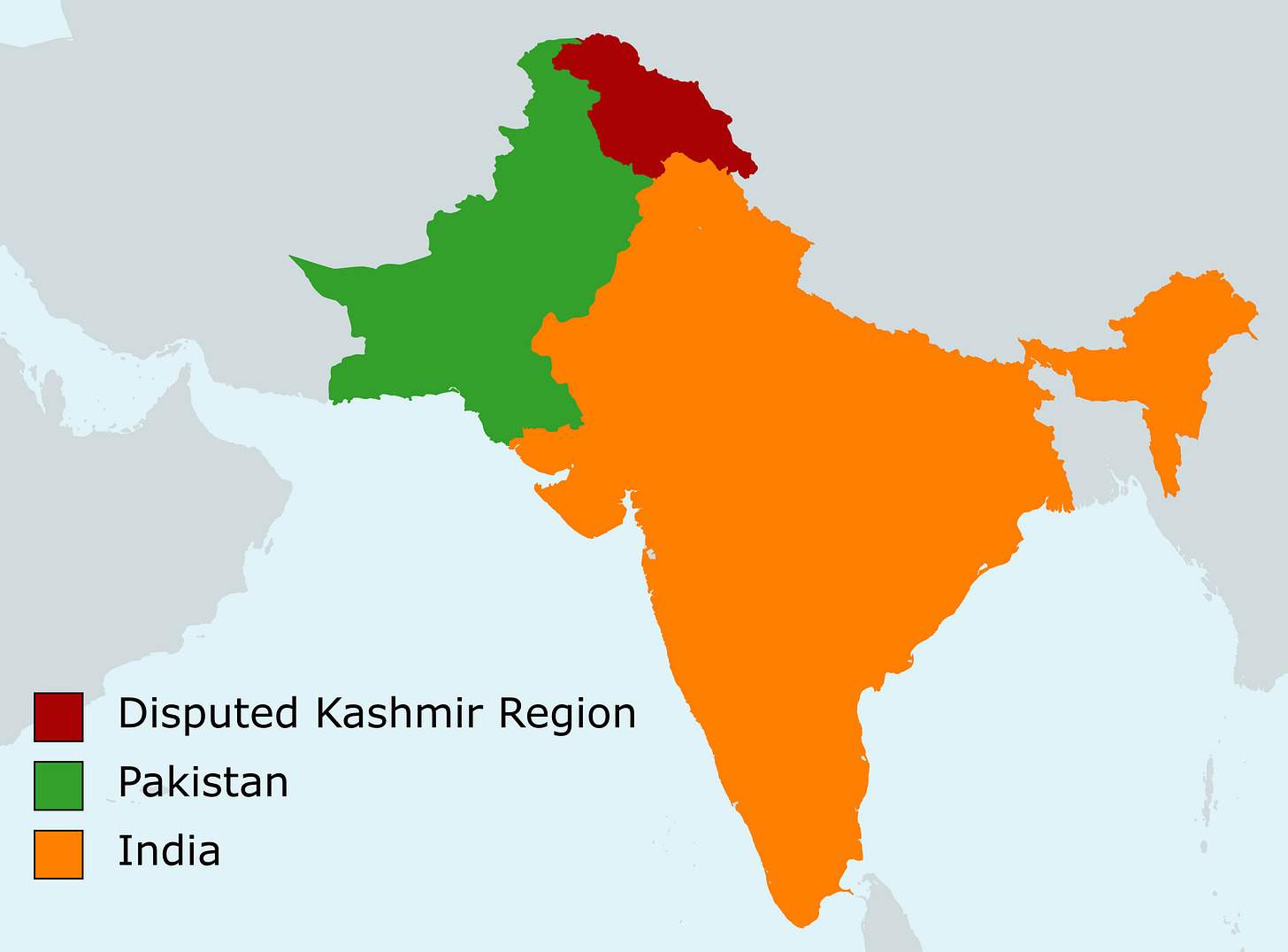Sometime before dawn in Bahawalpur, a child was praying. Moments later, he was gone—vaporized, burned, broken—another civilian sacrifice on the altar of national vengeance. The missile that killed him bore no terrorist flag. It flew in under radar from the world’s largest democracy.
India has officially entered the chat.
On April 22, 2025, a deadly militant attack in the Indian town of Pahalgam left 26 civilians dead. India blamed Pakistan-based extremists, a grimly familiar accusation, and responded in the only language the world still seems to understand: missile strikes. Nine of them. Launched in the pre-dawn dark, they tore into targets in Pakistan and Pakistan-administered Kashmir. Among them: a mosque. Among the dead: a child. Among the injured: two more names that will never matter in the halls of power, because their suffering wasn’t strategic enough.
India’s defense ministry called the strikes “precise,” “limited,” and “targeted against terrorist infrastructure.” Which is a funny way to describe a projectile that turned a place of prayer into a crater. But words are elastic in geopolitics. “Surgical” can mean anything from knocking on a door to blowing it off the hinges with a sledgehammer strapped to a fighter jet.
Pakistan responded with what passes for restraint: anger, condemnation, and a chilling promise to “respond at a time and place of its choosing.” The statement was delivered with the kind of eerie calm you’d expect from a man holding a grenade under the dinner table.
This is the part where we’re all supposed to pretend we’re surprised. We’re not. India and Pakistan haven’t been at peace since 1947. They’ve lived in a strange suspended hostility—border flare-ups, back-channel threats, diplomatic theater. Every few years, the curtain rises on a new act: a bombing, a crossfire, an incursion, a dead schoolgirl, a bombed convoy, and always, somewhere in the background, the dull hum of nuclear weapons quietly reminding everyone what the final act could look like.
Today’s missile strikes shatter an unspoken understanding. For decades, even amid war, both sides had avoided direct missile-to-missile confrontations. Not because they like each other, but because they understood the choreography of mutually assured destruction. You can hurl accusations, bullets, maybe even jets—but missiles? Missiles cross a line. Missiles are the language of finality.
India crossed that line. And did it with a straight face.
The alleged targets were “terror camps.” It’s always terror camps. These mythical facilities that are never clearly photographed, never fully named, always conveniently located just deep enough to require a breach of sovereignty. But one of those targets was a mosque. One of those targets killed a child. One of those targets made it very clear that this isn’t a metaphor anymore. This is the real thing.
The attack that set this off—Pahalgam—was brutal. Twenty-six civilians dead. Families shattered. India had every reason to be enraged. But here’s the part where reason usually bows out and something colder takes the wheel. This wasn’t about eliminating threats. This was about reasserting dominance. About showing strength for domestic audiences. About flexing on the international stage while the world is too busy unraveling to care.
Meanwhile, Pakistan denies involvement in the Pahalgam attack, as they always do, because that’s how this script goes. India says they’re lying. Pakistan says they’re being framed. Everyone retreats into their respective propaganda bunkers and pretends objectivity still exists. Behind the microphones, though, they’re both checking missile inventories and weighing the cost of escalation against the price of humiliation.
And beneath it all—beneath the explosions, beneath the official statements, beneath the media noise—there’s Kashmir. That cursed, beautiful, tortured stretch of land that both nations claim and neither can let go of. Kashmir, the nuclear tripwire. The forever flashpoint. The place where civilian blood has always been the ink for nationalist manifestos.
What makes this moment different is not just the weaponry—it’s the certainty. The terrifying, quiet certainty that nobody’s really in control anymore. Not the generals. Not the ministers. Not the foreign advisors or the retired diplomats. The machinery of conflict is running on momentum and pride now, and neither of those things tends to know when to stop.
The idiot god of war doesn’t care about proportionality. He doesn’t care who started it. He only cares that someone lit the match.
And now we wait. We wait to see how Pakistan responds. We wait to see what India does next. We wait to see if the rest of the world remembers how to intervene before someone decides to turn escalation into doctrine. Because when two nuclear powers decide to gamble with missiles, no one gets to fold and walk away. There is no bluff. There is only impact.
One child is already dead. One mosque is rubble. And the line that once divided rhetoric from catastrophe just got a little blurrier.
This post has been syndicated from Closer to the Edge, where it was published under this address.

